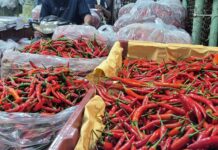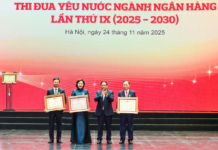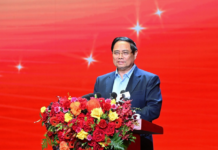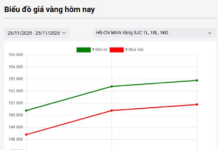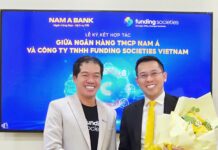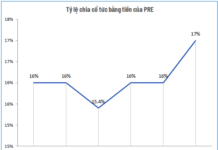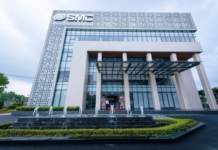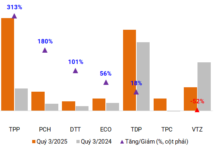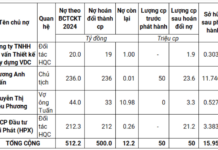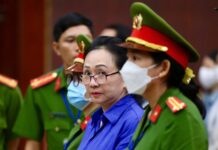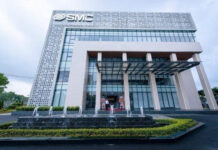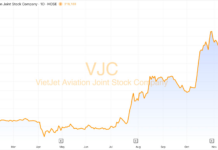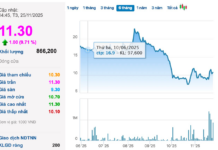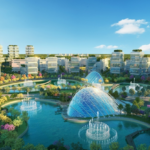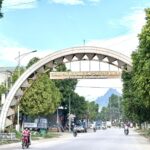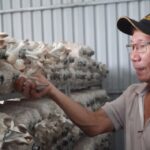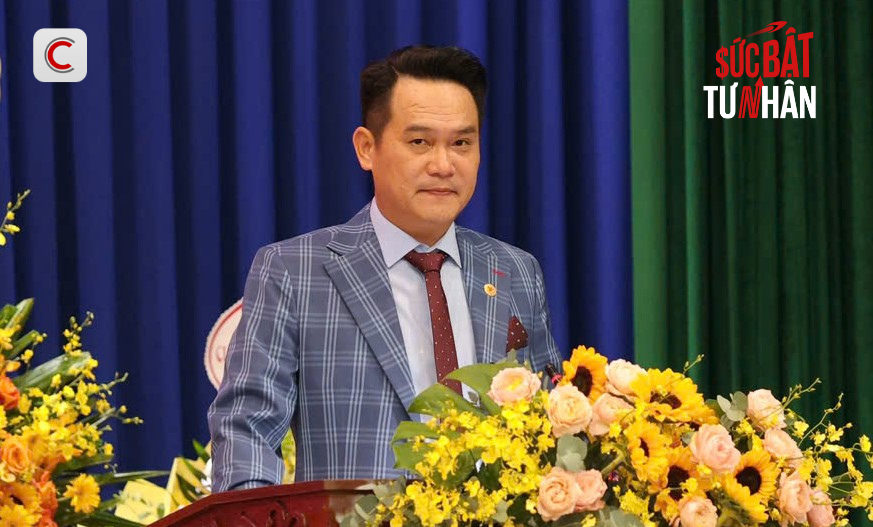
Mr. Dang Hong Anh, Chairman of the Vietnam Young Entrepreneurs Association.
On the afternoon of August 23, the tenth Local Dialogue Session took place as part of the Local Dialogue Round of the Vietnam Private Sector Forum 2025 (VPSF 2025). The event was chaired by the Vietnam Young Entrepreneurs Association and hosted by the newly-established Tay Ninh Young Entrepreneurs Association.
Speaking at the dialogue, Mr. Dang Hong Anh, Member of the Central Committee of the Vietnam Fatherland Front, Vice President of the Vietnam Youth Union, and Chairman of the Vietnam Young Entrepreneurs Association, shared that Tay Ninh and the vast Southern region are presented with unprecedented development opportunities. From border gate economics to high-tech agriculture, renewable energy, tourism, and logistics services, the potential is immense.
However, according to Mr. Hong Anh, to turn this potential into tangible assets and seize these opportunities, we need a truly transparent business environment, an administrative system that is both proactive and upright, and a stable and predictable legal framework so that every policy issued unblocks resources instead of creating barriers.
Mr. Nguyen Tan Thu, Chairman of the Young Entrepreneurs Association of Vinh Long Province, shared that while Tay Ninh has industrialized quite successfully, some areas still hold on to the traditional agricultural economic mindset and struggle with questions like “what else to farm or raise?” While some enterprises have shown interest in finding export avenues, most have neglected the domestic market of over 100 million people, which is currently dominated by corporations from Thailand, the Netherlands, the US, and other European countries.
“In the animal feed market, 80-90% of revenue comes from countries like Thailand, the US, and China, while domestic enterprises are at a complete disadvantage. We are the world’s largest rice exporter, with approximately $4.5 billion in exports annually, but we spend $12 billion on buying corn, soybeans, etc., for animal feed production,” said Mr. Thu.
He also pointed out the challenges in land-use conversion. For instance, if a business wants to develop production and trading activities, the land must be zoned for those purposes. Only then can they proceed with the necessary procedures related to the environment, fire safety, etc., to meet the production requirements. However, land-use conversion currently requires meetings of the Provincial People’s Council and involves planning, which prolongs the process and causes difficulties.
In addition, many industrial parks are not yet up to par for domestic enterprises and mainly offer incentives to FDI companies. For example, the rent for industrial land is approximately $100 per square meter for a 50-year lease. But if a company wants to rent 50,000 square meters, they would have to pay over VND 100 billion. This is a significant amount.
“If a company spends VND 100 billion on renting land, where will they get the money to build factories, comply with fire safety regulations, and invest in production and business operations? We should have industrial parks for domestic small and medium-sized enterprises with areas of only 10,000 to 20,000 square meters,” suggested Mr. Thu.
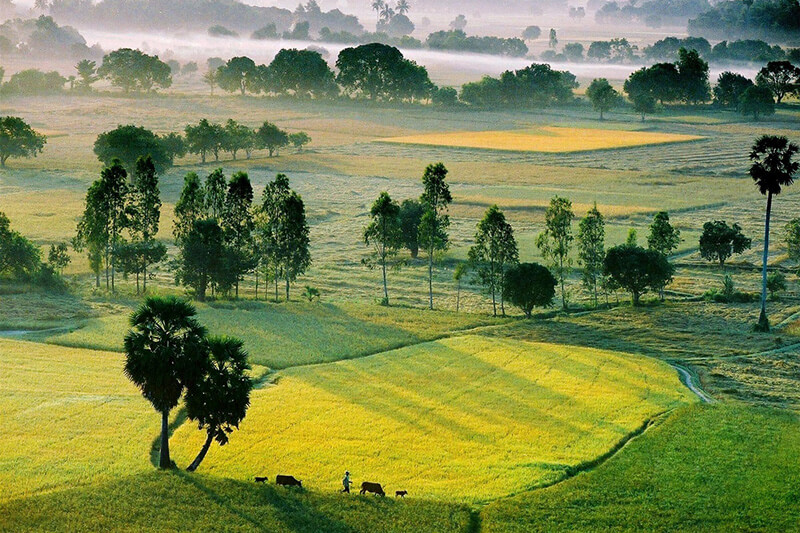
Mr. Dang Khanh Duy, Vice Chairman of the Tay Ninh Young Entrepreneurs Association and General Director of Tan Nhien Joint Stock Company, also emphasized the need to develop high-tech agriculture using AI and precision technology to increase productivity compared to traditional methods, reduce labor costs, and meet international export standards such as Global GAP and FSSC 22000.
Mr. Duy believes that the OCOP program, if effectively developed, can serve as a bridge to bring high-quality products to consumers by building brands, ensuring traceability, and expanding markets. This combination will not only modernize agriculture but also promote sustainable rural economic development and elevate Vietnamese products in the global market.
He proposed financial and technical support for enterprises to apply AI and Big Data in agricultural production, organize free training programs on digital transformation for businesses, establish preferential credit funds for small and medium-sized enterprises, especially startups, in the OCOP field, and encourage new capital mobilization channels like venture capital funds.
Additionally, there is a need to develop logistics infrastructure by investing significantly in transportation infrastructure, especially connecting provinces and cities to reduce logistics costs, and building modern logistics centers to support exports.
“Pacific Land Vietnam Revives Hanoi’s Hi-Tech Biotech Park After 17-Year Wait”
The capital city of Hanoi has finally commenced construction on Vietnam’s first and only hi-tech biotechnology park, spanning almost 200 hectares with a total investment of VND 7,400 billion. This groundbreaking project has overcome years of legal and planning hurdles, with Pacific Land Vietnam entrusted with over 5.6 thousand square meters to develop this ambitious initiative.
The Northern District of Binh Duong Prepares to Commence Construction of the Tam Lap 2 Industrial Cluster
The Tam Lap II Industrial Cluster, spanning 50 hectares, is set to welcome its first wave of businesses relocating from the southern regions of Binh Duong Province. This marks a significant step forward in the province’s economic development, offering a strategic location for companies seeking expansion and a vibrant, thriving hub for industrial growth. With its ample space and well-developed infrastructure, the cluster is poised to become a bustling epicenter of commercial activity, attracting investors and entrepreneurs alike.
Peace Province: Strengthening Diplomatic Ties and Economic Cooperation to Attract Investment
Peace Province boasts a diverse range of industries, including agriculture, industry, and tourism, each presenting untapped potential for development. In recent years, the province has actively fostered diplomatic relations and economic collaborations, introducing numerous investment incentives to attract businesses and investors alike.
The Green Thumb’s Bold Venture: How One Farmer’s Unconventional Choice Reaps Profits
Transitioning from animal husbandry to cultivating a “leafless” crop, Mr. Nguyen Du Hao not only helped his family overcome financial difficulties but also achieved a stable income and improved their quality of life.
“Sustainable Development: A Conversation with Ms. Đặng Huỳnh Ức My at the ‘Gateway to ASEAN’ Conference”
On September 6, the UOB Singapore-hosted conference, “Gateway to ASEAN” 2024, themed “ASEAN: Crossroad to The World,” took place in Ho Chi Minh City. Ms. Dang Huynh Uc My, Chairman of the Board of Directors of TTC AgriS and Betrimex, participated in the discussions, offering insightful solutions for sustainable business development.


